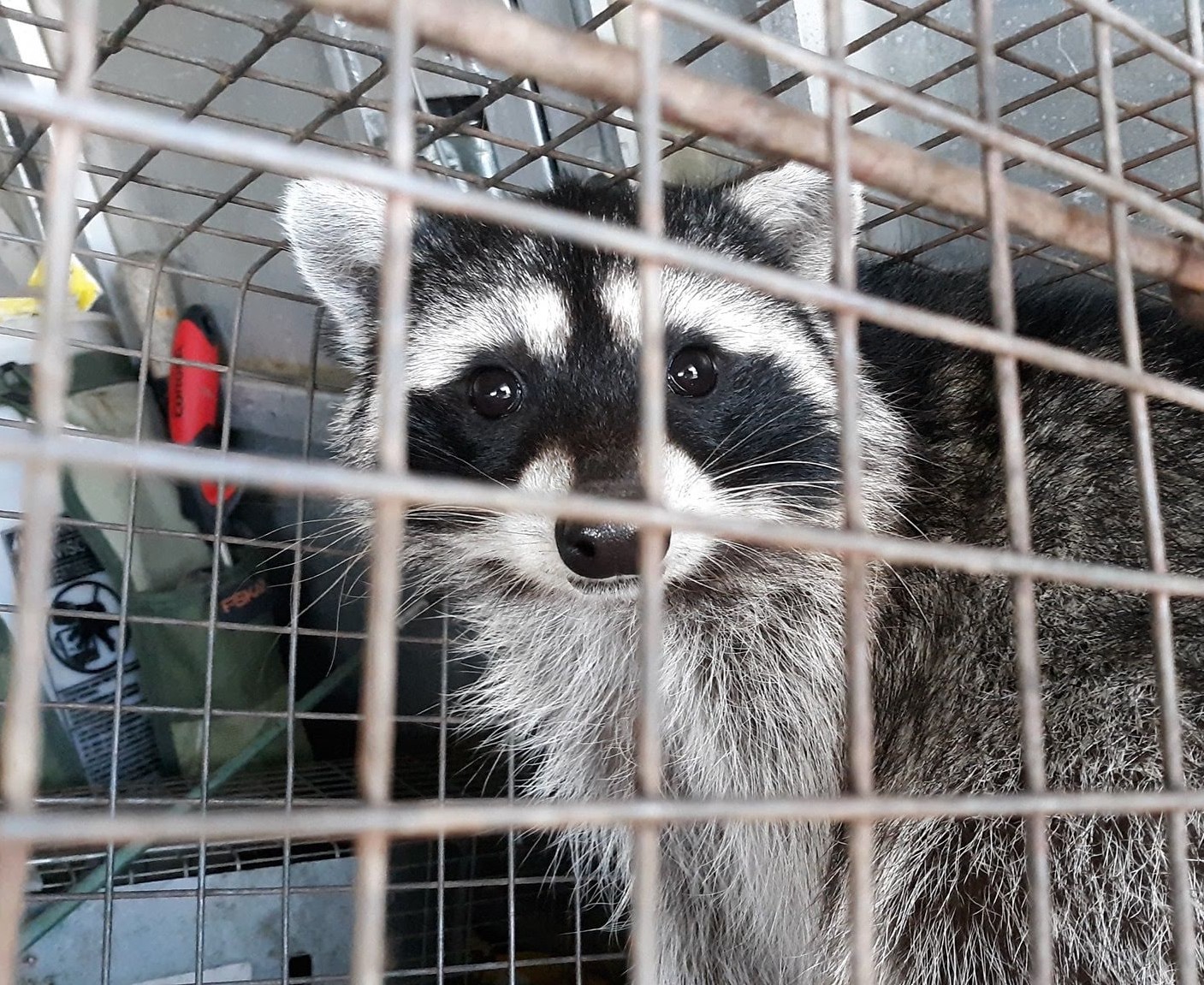Raccoons in the Attic
In preparation for our cold Montgomery winters, raccoons look for a warm place to den. Raccoons are agile climbers and can scale most homes with ease. They also use trees surrounding your home to gain access to your roof. Once they find themselves on your home, raccoons are known for the excessive damage they can do to your roof and ventilation systems in order to gain access to your warm attic. Once inside, raccoons tear up and soil your home’s insulation.
It is imperative that you act swiftly if you believe you have raccoon activity in your attic. Raccoons carry a variety of hazardous diseases that put us at risk living in our own homes. Our professionals can safely implement raccoon trapping programs and conduct any necessary repairs to keep future animals at bay. The best way to prevent future wildlife intrusion is to secure all potential entry points so animals cannot re-enter your home. Ask about our Wildlife-proofing services to learn more.
Raccoon Exclusions
Raccoons are most well known for attic intrusion, but they create problems on several other fronts as well. Female raccoons will raise their kits in chimneys, so if you don’t have a chimney cap on your flue, call us and set an appointment so we can install one for you. Raccoons also like to live in and under sheds and under porches and decks. Maryland Wildlife Solutions is equipped to provide proper long term solutions to all of these situations, and we are only a call away!
Raccoon Damage Repair
As mentioned previously, damage to your home is one of the biggest complaints homeowners have about intruding raccoons. Common intrusion damage to homes in the Greater Baltimore Area include torn soffits, bent louvers on gable vents, torn shingles, and damage to powered roof vents. On the inside of the home they have been known to cause costly damage to HVAC systems, facilitate the need of insulation replacement due to their hazardous feces, and occasionally tear through the sheetrock gaining entry into the living space. Carcasses in walls can cause pungent smells that can last months and cause severe insect infestation causing additional headaches to unfortunate homeowners.
DIY removal attempts often expose the homeowner to a slew of health and safety risks and can often make the situation even worse. Raccoon bites can transmit rabies, and their feces contains Baylisascaris procyonis, a parasitic roundworm that incur lethal results. In addition, ladder work, roof work, and attic work, should only be attempted by professional tradesmen. Raccoon damage has been known to cause fires, floods, and mold problems. Let us safely remediate your raccoon damage. Call 410-994-8881 today.
Other Raccoon Issues
Raccoons have a habit of knocking down and raiding trash cans. While trapping the offenders is a possible solution, we recommend keeping your trash in a secure location until trash day. Unfortunately spray repellents don’t work to keep raccoons out of your trash, and your trash will attract raccoons and other wildlife to your home. Making sure your home is sealed preventatively helps the risk of home intrusion if you don’t have better options of storing trash.
Another frequent complaint involving raccoons is turf damage. Raccoons will tear up freshly laid sod in search for grubs. The damage can be quite substantial so enacting a trapping program in a timely fashion is key. Trapping the “grubbing” raccoons is difficult and requires strategically placed traps and special bait. If you are experiencing turf damage, act quickly and call 410-994-8881.
Home Remedies
Many products are advertised to ward off offending raccoons. We encourage you to do your research before buying any of these products. Raccoons are resilient creatures and products like sprays and granular repellents are known to have little to no effect on these animals. Pinesol, cayenne pepper spray, and peppermint can actually make the problem worse by forcing the raccoons into a worse location within the home, assuming it even elicits a reaction. Mothballs are not only ineffective, but also dangerous to apply in your home, especially for children. Loud noise and flashing lights are no match for these adaptable creatures. If you want to be proactive in hardening your home as a raccoon target, we suggest trimming tree branches away from the home, storing garbage out of reach of raccoons, and conducting preventative exclusion including installation a chimney caps.
One thing is for sure, if you have an active raccoon problem, you need professional assistance. Maryland Wildlife Solutions is here for you.

